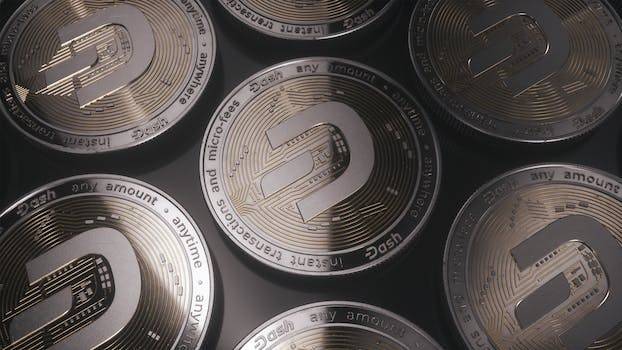How Wrapped Bitcoin Revolutionizes Cross-Chain Interoperability
Cryptocurrencies are transforming the way we exchange value, enabling faster, more secure, and borderless transactions. However, despite their immense potential, one obstacle that hampers their broader adoption is the lack of cross-chain interoperability. This limitation prevents different blockchain networks, each with their unique features and capabilities, from seamlessly communicating and exchanging assets with one another. But fret not. The introduction of Wrapped Bitcoin (WBTC) opens up new horizons for cross-chain interoperability. In this article, we will explore how Wrapped Bitcoin is revolutionizing the cryptocurrency landscape and allowing you to navigate between different blockchain ecosystems with ease.
Understanding Cross-Chain Interoperability
Most blockchain networks operate independently, creating silos that hinder the free flow of assets between different chains. Cross-chain interoperability seeks to break down these barriers by establishing protocols and standards that enable communication and asset transfer across multiple networks. Traditionally, this has been a challenging task, requiring complex bridges and intermediaries to facilitate the process.
Enter Wrapped Bitcoin – an innovative solution that creates a bridge between the Bitcoin blockchain and other smart contract platforms, such as Ethereum. By wrapping Bitcoin in a compatible format, WBTC allows you to bring the value of Bitcoin to different blockchain ecosystems, effectively bridging the gap between these networks.
How Does Wrapped Bitcoin Work?
When you want to access the benefits of Bitcoin on a different blockchain, you can convert your Bitcoin into WBTC. This process, known as tokenization, involves locking up your Bitcoin in a custodial account. In return, you receive an equal amount of WBTC tokens on the desired blockchain. These WBTC tokens are backed by the Bitcoin held in custody, ensuring a 1:1 pegged value.
Once you have WBTC, you can freely utilize it within the target blockchain. For example, you can deploy it in decentralized applications (DApps), trade it on decentralized exchanges (DEXs), or use it as collateral for loans and financial services on different platforms. This versatility unlocks a world of possibilities for your Bitcoin holdings.
The Advantages of Wrapped Bitcoin
1. Increased liquidity: By bringing Bitcoin onto other blockchain networks, WBTC enhances liquidity across various decentralized financial (DeFi) platforms. It expands the choice of assets available for lending, borrowing, and trading, creating more robust and efficient markets.
2. Access to DeFi ecosystem: DeFi is a rapidly growing sector within the blockchain industry, offering a wide range of financial services without middlemen. WBTC enables Bitcoin holders to leverage the power of DeFi applications. You can now participate in yield farming, earn interest, or trade on DEXs using your wrapped Bitcoin, all while experiencing the speed and low fees of the Ethereum network.
3. Improved cross-chain utility: Previously, moving assets between different blockchain networks was a cumbersome and time-consuming process. WBTC simplifies this by providing a standardized and secure method to transfer Bitcoin across chains. With WBTC, you can seamlessly navigate between different ecosystems, unlocking opportunities for investment, diversification, and collaborations.
FAQs
1. How can I convert my Bitcoin to WBTC?
To convert your Bitcoin to WBTC, you can use approved custodians who handle the tokenization process. Simply send your Bitcoin to the custodian’s address, and they will issue an equivalent amount of WBTC to your specified wallet address on the desired blockchain. Make sure to follow the instructions provided by the custodian carefully.
2. Is WBTC redeemable for Bitcoin?
Yes, WBTC is redeemable for Bitcoin. When you no longer want to hold WBTC, you can send it back to a custodian, who will then release the locked Bitcoin. The redemption process works in reverse, unlocking the WBTC tokens and returning the equivalent amount of Bitcoin to your chosen wallet address.
3. Are there any risks in using Wrapped Bitcoin?
While Wrapped Bitcoin has seen widespread adoption and has proven to be secure, there are always inherent risks associated with any cryptocurrency. These risks include potential bugs or vulnerabilities in WBTC smart contracts, custodian-related concerns, and fluctuations in the value of Bitcoin itself. Make sure to understand the risks and use trusted platforms and custodians when dealing with WBTC.
4. Can I use WBTC across all blockchain networks?
Currently, WBTC is primarily utilized on the Ethereum network. However, efforts are underway to extend its compatibility to other smart contract platforms, further enhancing cross-chain interoperability. As more blockchains adopt WBTC, the possibilities for its usage will continue to expand.
5. Are there any transaction fees associated with using WBTC?
When converting Bitcoin to WBTC or vice versa, you may encounter transaction fees that vary depending on the custodian or exchange you utilize. Additionally, when interacting with WBTC on different blockchain networks, you will incur the standard network transaction fees inherent to those platforms.
Wrapped Bitcoin emerges as a game-changer in the world of cross-chain interoperability, offering a seamless and secure mechanism for integrating the value of Bitcoin into other blockchain ecosystems. With WBTC, the limitations previously associated with operating within a single blockchain no longer hinder your ability to access diverse financial services and explore various investment opportunities. So, why limit yourself when you can enjoy the best of both worlds? Take advantage of Wrapped Bitcoin and embrace the new era of cross-chain interoperability.





 By
By
 By
By

 By
By
 By
By